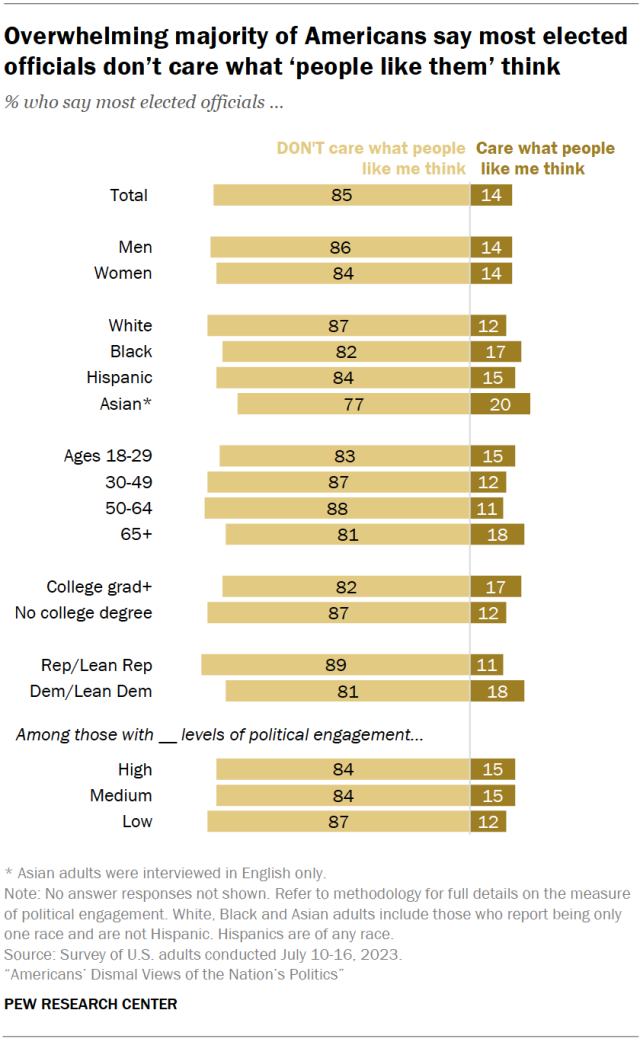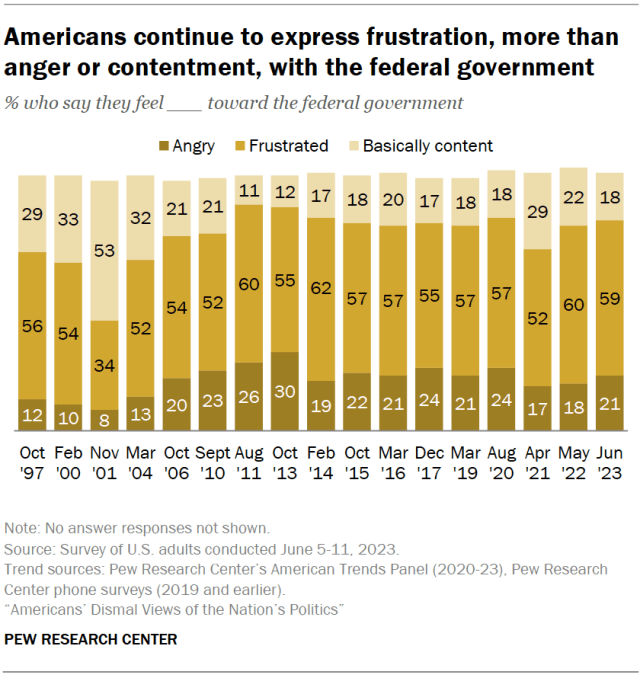Americans are more likely than people in many other countries to believe that most elected officials don’t care what people like them think. More than eight-in-ten U.S. adults said this in a spring 2023 Pew Research Center survey, compared with a median of 74% of adults across the 24 countries surveyed.
Pew Research Center conducted this analysis to further explore Americans’ discontent with elected officials, following a Center report finding widespread discontent with the country’s political system.
This analysis is based on recent Center surveys as well as data from the U.S. Census Bureau and Duke University. Links to these data sources are available in the text. The links to the Center surveys include information about the field dates, sample sizes and other methodological details.

The U.S. public doubled down on this view in a separate Center survey conducted in July 2023, when 85% said most elected officials don’t care what people like them think. In the early 2000s, by comparison, a much smaller majority of Americans felt this way.
There are only modest demographic and political differences in these views among Americans today.
Why do Americans feel this way?
We also asked a broader series of questions about the U.S. political system in Center surveys conducted in June and July 2023. Overall, Americans broadly distrust the system and question whose interests it’s serving.
For example, only 4% of Americans think the political system is working extremely or very well today, and an equally tiny share have a lot of confidence in its future. Americans have long felt “frustrated” toward the federal government, and just 16% trust the government to do the right thing most or just about all of the time.

In part, these feelings are related to Americans’ perceptions of elected officials and their reasons for serving. Seven-in-ten Americans say ordinary people have too little influence over the decisions members of Congress make. And majorities say that large employers in their districts, lobbyists and special interest groups, and wealthy donors have too much influence.
When it comes to what Americans think motivates today’s elected officials, 63% say that most or all of them ran for office because they wanted to make a lot of money; by comparison, only 15% say most or all wanted to serve the public. And a large majority of Americans (85%) say that the cost of political campaigns can make it hard for good people to run for office.
Who becomes state legislators?
Elected officials have a different demographic profile than the U.S. public as a whole. For example, women have long been underrepresented in Congress, according to Center research.
At the state level, Duke University researchers recently gathered demographic data for lawmakers serving in 2023 and 2024. That data shows that several groups are currently underrepresented in state politics relative to their shares of the U.S. population. Those groups include women and Americans without bachelor’s degrees, as well as Hispanic and Asian Americans.
However, Americans who belong to these groups are not necessarily the most likely to say that elected officials don’t care what people like them think. For example, women are as likely as men to say this.
And in the July 2023 Center survey, most Americans said it’s not too or not at all important to them that the political candidates they support are from the same racial and ethnic background or are the same gender as them. By far, what’s most important to them is that candidates share their political views.
